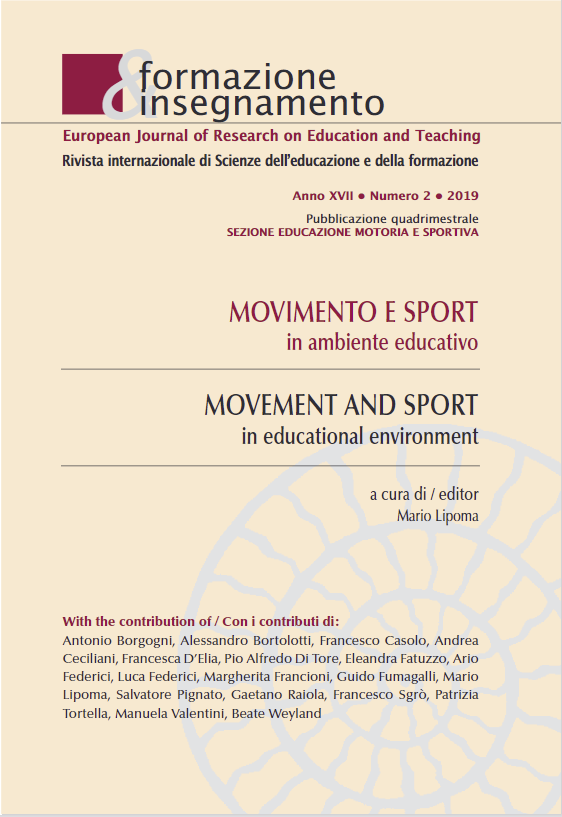Games and relationships. Promoting well-being and learning in school through inclusive competitions’ experiences
Abstract
The following paper will explore how Traditional Motor Games relate to the social identity construction of a class amongst students between 14 and 16 years old, in a lower secondary school near Verona (Italy). Following the Erasmus+ Project BRIDGE, during their first two years of school attendance, a class regularly carries out some particular practices: not "classic" sports, but activities with different rules’ structures. After each project’s Physical Education lesson, firstly teachers conduct a debriefing, then each studentplayer reports his/her perceptions, filling an individual module. This simple tool is meant to collect issues related to the games’ educational values in an active and experiential way, deliberately at the antipodes with respect to an academic approach. The working design hypothesis, with a Motor Praxeology approach framework, can be summarized as follows: a traditional games’ practice leads pupils towards original relationships experiences, thus can foster their personal and social development. Results show that these processes are rather fruitful: teachers and students report about a successful change in both class relational climate and supportive interpersonal relationships, and a positive impact on motivations, learning and even school results too.
Downloads
Published
How to Cite
Issue
Section
License
Copyright (c) 2019 Pensa MultiMedia

This work is licensed under a Creative Commons Attribution 4.0 International License.
Formazione & insegnamento is distributed under Attribution 4.0 International (CC BY 4.0).
For further details, please refer to our Repository & Archiving Policy, as well as our Copyright & Licensing Terms.





